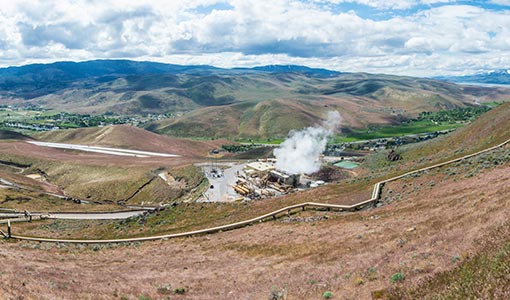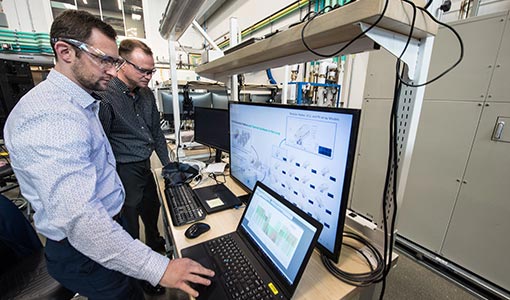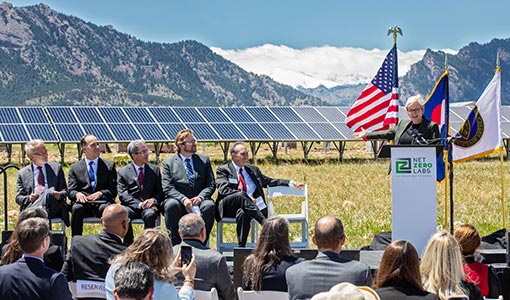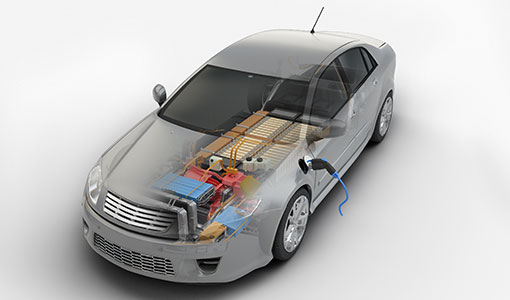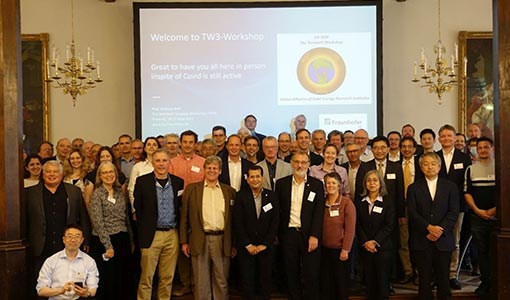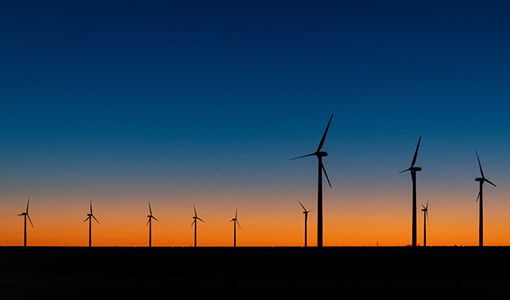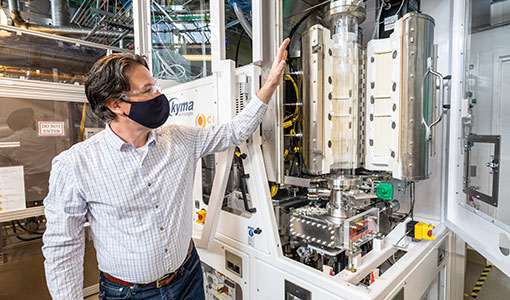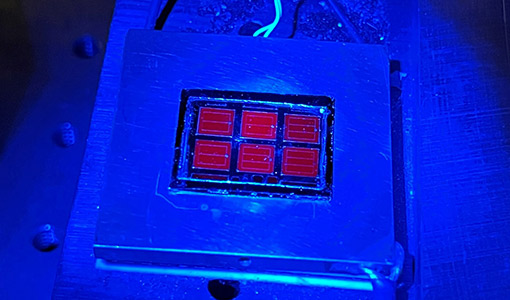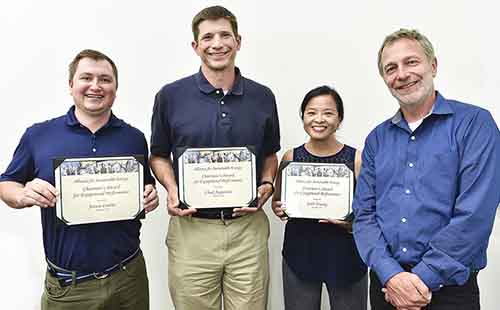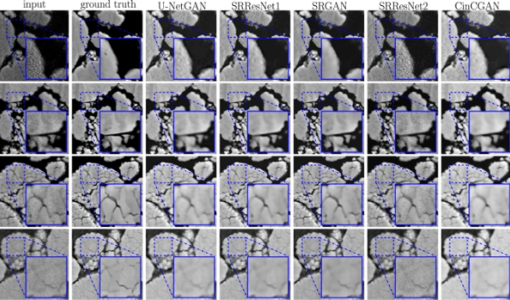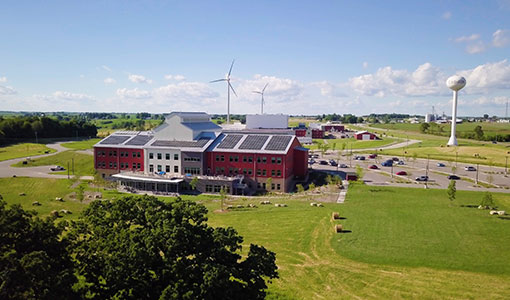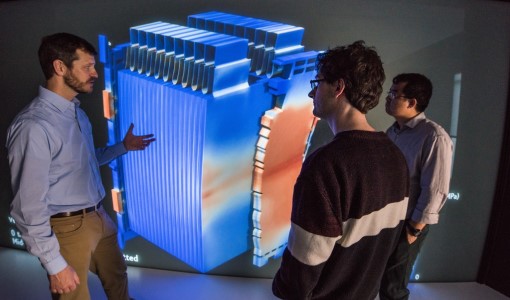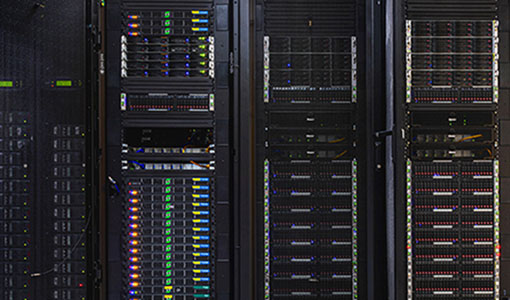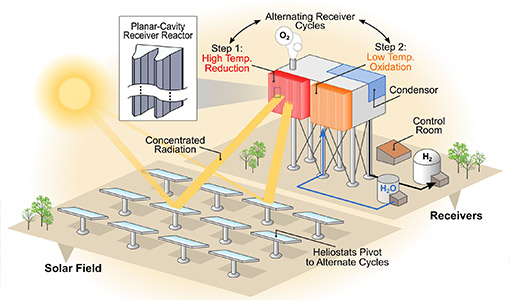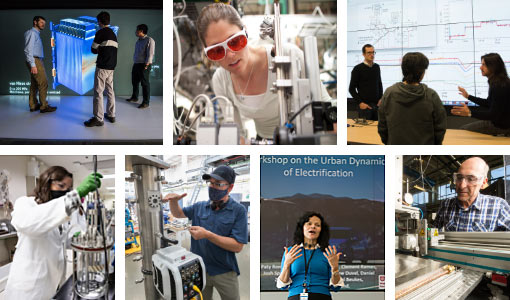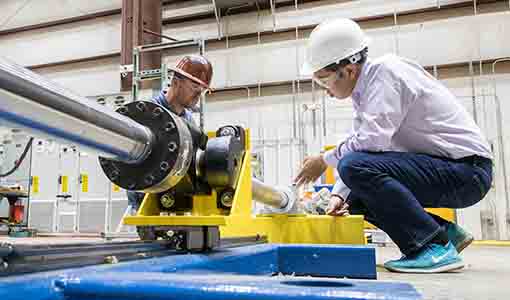May 2022
What Are Geophones?
Deploying 60 gigawatts of geothermal electricity would be enough to provide clean, reliable power for 129 million American homes and businesses. A key factor to unlocking that amount of always-available geothermal energy could be through innovation in subsurface seismic sensors, or geophones.
Joint Institute for Strategic Energy Analysis Launches Green Computing Catalyzer
The third catalyzer in the JISEA Catalyzers initiative will explore algorithmic energy efficiency, in addition to ways to limit energy usage of computing and potential pathways to reuse, repair, or recycle hardware products and materials.
NREL Pledge Curbs Emissions as Part of Larger DOE Initiative
Martin Keller, director of NREL, said he expects the Flatirons Campus near Boulder, Colorado, will reach net zero emissions annually by the end of fiscal year 2023 and the South Table Mountain Campus outside Golden, Colorado, to hit that achievement three years later.
Battery Policies and Incentives Database Contributes to U.S. Efforts To Build a Secure Electric Vehicle Battery Supply Chain
Drastically increasing fleet and consumer use of electric vehicles (EVs) and developing energy storage solutions for renewable energy generation and resilience are key strategies the Biden administration touts to slash national transportation emissions and curtail climate change.
World's Leading Solar Energy Research Institutions Discuss Shared Challenges, Growth Opportunities at 3rd Terawatt Workshop
Representatives from solar research institutes around the world and international participants from academia and industry discussed the implications of the multi-terawatt photovoltaics market at the 3rd Terawatt Workshop of the Global Alliance of Solar Energy Research Institutes, May 16-17 in Freiburg, Germany.
News Release: Experts Forecast the Wind Plant of the Future To Be Taller and More Economical
Researchers Philipp Beiter and Eric Lantz from NREL, together with collaborators from the Lawrence Berkeley National Laboratory and the U.S. Department of Energy, elicited opinions from more than 140 of the world's leading experts about their expectations of future wind plant design in 2035.
ARPA-E Funding Drives Innovation, Industry Partnerships at NREL
Among NREL's many funding agencies, the U.S. Department of Energy's Advanced Research Projects Agency-Energy (ARPA-E) funds what is perhaps some of NREL's most innovative work.
News Release: NREL Creates Highest Efficiency 1-Sun Solar Cell
Researchers at NREL created a solar cell with a record 39.5% efficiency under 1-sun global illumination. This is the highest efficiency solar cell of any type, measured using standard 1-sun conditions.
Capturing Light From Heat at 40% Efficiency, NREL Makes Big Strides in Thermophotovoltaics
NREL has a long history of building solar cells that capture light from the sun at record-setting efficiencies. But the sun is not the only light source from which photovoltaics can capture energy.
Beneath the Surface: A Champion of Renewable Energy
Meet NREL senior legal and regulatory analyst Aaron Levine, who examines how environmental regulations and hydropower could help protect the planet.
Autonomous Energy Systems Expand Into Real-World Applications
NREL's Autonomous Energy Systems work has been used commercially, applied in cross-cutting demonstrations, and is continually pushing the scientific edge of controls and optimization.
Expanded Nanoscale Imaging Lends a Clearer Vision for the Future of Batteries
At NREL, there is a common consensus that X-ray imaging techniques hold the key to unlocking critical information about the performance of energy storage systems.
The Future of Distributed Wind in the United States: Considerations for Unlocking Terawatt-Level Potential
The U.S. federal government has set a goal of 100% clean electricity in 2035 and a net-zero carbon economy in 2050. To achieve these ambitious targets, all forms of renewable power will be important—including distributed wind.
From Full Fare to Fast Charging
Researchers from NREL are working to make sure that New York City's electric vehicle charging network and local utility can meet the eventual demands of more than 100,000 electric cars for hire.
Laboratory Partnerships Bolster Battery Recycling Prize Solutions
The Lithium-Ion Battery Recycling Prize allows entrepreneurs to access state-of-the-art research facilities as technical partners in collaboration within the American-Made Network.
Q&A With Nicholas Rorrer: Plant-Based Plastics and Plastic Plants
As part of the Manufacturing Masterminds Q&A profile series, Nic Rorrer shares why he loves polymers as well as Legos, yoga, RuPaul's drag races, and saving the world.
No Time, No Chips: No Problem for NREL
Amid global supply chain delays and semiconductor shortages, NREL researchers use creative problem-solving to deploy two high-performance computing solutions within one year.
News Release: NREL Scientists Advance Renewable Hydrogen Production Method
Perovskite materials may hold the potential to play an important role in a process to produce hydrogen in a renewable manner, according to an analysis from scientists at NREL.
15 NREL Researchers Receive Distinguished Member of Research Staff Designation
Fifteen researchers across NREL have been awarded the Distinguished Member of Research Staff designation for their exemplary contributions to NREL's mission, the respect they have earned from peers around the world, and their leadership at the laboratory and beyond.
A TEAMER Approach to Fighting Climate Change
Through the U.S. Department of Energy's Testing Expertise and Access for Marine Energy Research (TEAMER) program, developers, researchers, companies, and national laboratories are teaming up to share resources.
Last Updated May 28, 2025

